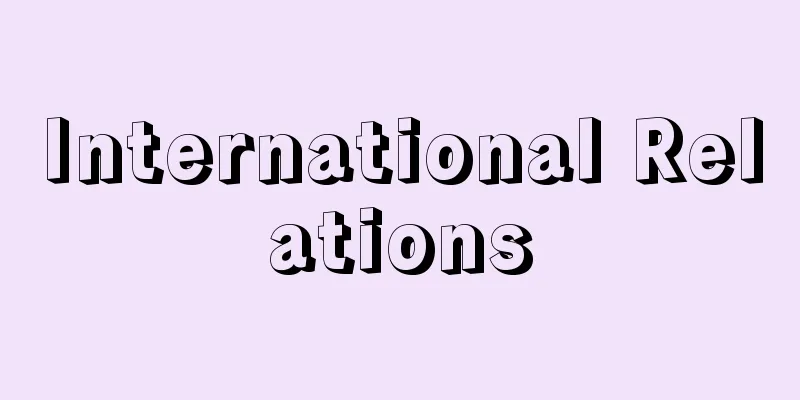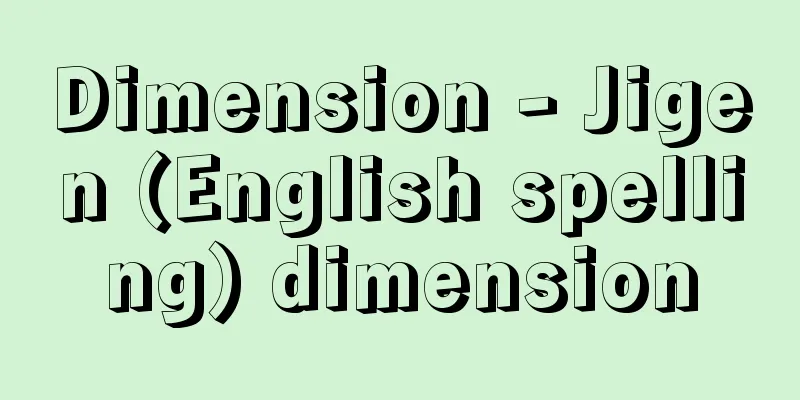International Relations

|
The study of the relationships between states, and between states and international organizations and some sub-national actors (bureaucracies, political parties, interest groups, etc.) It is related to various academic fields such as political science, geography, history, economics, law, sociology, psychology, and philosophy. The study of international relations began in the United States and Europe in the early 20th century, and began to gain momentum in the 1920s. After World War I, most of the government documents of Imperial Russia and the German Empire were made public, which led to the study of diplomatic history. The establishment of the League of Nations brought hopes of establishing a peaceful world order, and this led to the study of international organizations and international law. In the early interwar period, international relations theory was a by-product of the peace movement, and was primarily concerned with understanding the causes and costs of war, as well as the political, social, economic, and psychological aspects of war. However, the outbreak of World War II led to a backlash against the emphasis on peace in international relations theory, which was criticized for ignoring the harsh realities of international politics. Realism emerged as a counter theory to this liberal idealism. Hans Morgenthau's Politics Among Nations, published in 1948, was a major influential realist textbook for half a century. There are many different views of realism, but what they all have in common is that they place national interest and the struggle for power at their core. Since the 1970s, new debates on the relationship between the structure and institutions of the international system have been gaining attention. One end of the debate is neorealism, presented in the book Theory of International Politics by American international political scientist Kenneth Waltz, published in 1979. Neorealism maintains the concept of power-centeredness, but incorporates the theory of structure reflected in alliances between nations with different powers and capabilities, and argues that the structure of the international system limits the foreign policy options available to nations and has a significant impact on international organizations. On the other hand, neoliberalism argues that international organizations do not simply reflect or systematize the power structure of the international system. Neoliberalism does not reject the anarchic international system of realists, but argues that the behavior of nations can change through interactions with international organizations such as the European Union (EU), the North Atlantic Treaty Organization (NATO), the World Trade Organization (WTO), and the United Nations (UN), and that in the long run, such interactions reduce the possibility of international conflict. In the second half of the 20th century, international relations theory was gradually influenced by constructivism. Constructivism analyzes international relations by focusing on a common understanding (→ intersubjectivity) that is formed historically and socially from multiple subjectivities. Recent thought in international relations theory is partly shaped by postmodernism (→ postmodernism) and critical theory. According to postmodernism, the international structure assumed in realism and other theories is a social structure that reflects a world view that serves the interests of the elite. Critical theory essentially concerns itself with how to liberate humans from oppressive social institutions and practices, such as Marxist class domination, as well as domination based on gender, race, religion, ethnicity, and national character. Since examples of these forms of domination can be found all over the world, it was thought to provide important insights into international relations theory in the early 21st century. The research area of international relations is broad, including academic fields such as international politics and international political economy, as well as various theories and concepts such as foreign policy decision-making theory, conflict theory, game theory, international systems theory, democratic peace theory, interdependence theory, and international regime theory. When comparing international relations with international politics, the relationship between the two is somewhat confusing, with some theories regarding the two as the same, and others regarding international politics as the center of international relations but only a part of it. Research questions in international relations arise from the context of the times and focus on the most pressing issues of the time. In the early 21st century, many studies were conducted focusing on issues such as terrorism, religious and ethnic conflicts, state fragmentation, the emergence of quasi-states and non-state actors, the proliferation of weapons of mass destruction and efforts to prevent the proliferation of nuclear weapons, and the development of international organizations. Source: Encyclopaedia Britannica Concise Encyclopedia About Encyclopaedia Britannica Concise Encyclopedia Information |
|
国家と国家,および国家と国際機構や一部の準国家的主体(官僚機構や政党,利益団体など)との関係に関する研究。政治学や地理学,歴史学,経済学,法学,社会学,心理学,哲学などさまざまな学術分野と関連している。 国際関係の研究は 20世紀初頭にアメリカ合衆国やヨーロッパで始まり,1920年代から本格化した。第1次世界大戦後,帝政ロシアとドイツ帝国の政府公文書の大部分が公開されたことで外交史の研究が進み,新たに国際連盟が設置されたことで,平和な世界秩序の確立という期待がもたらされ,国際機関や国際法などの研究が行なわれた。両大戦間期の初期における国際関係論は平和運動の副産物であり,主として戦争の原因と費用,および戦争の政治的,社会的,経済的,心理的側面の理解に関するものだった。しかし,第2次世界大戦の勃発が国際関係論における平和重視に対する反発を招き,国際政治の厳しい現実を無視していると批判された。こういった自由主義的理想主義への対抗理論として登場したのが現実主義(リアリズム)である。1948年に出版されたハンス・モーゲンソーの『国際政治学』Politics Among Nationsは,現実主義の教科書として半世紀にわたって大きな影響を与えた。現実主義には多くの立場があるが,すべてに共通するのは国益(→ナショナル・インタレスト)と権力闘争を中心概念に据えていることである。 1970年代以降は,国際体系の構造と制度の関係に関する新たな議論が注目された。議論の一端は,1979年に出版されたアメリカの国際政治学者ケネス・ウォルツの著書『国際政治の理論』Theory of International Politicsで提示された新現実主義(ネオリアリズム)である。新現実主義は権力中心の概念を保持しつつ,力や能力が異なる国家間の同盟関係などに反映された構造の理論を取り入れ,国際体系の構造は国家が利用しうる外交政策の選択肢を制限し,国際機関にも大きな影響を及ぼすと主張した。一方,国際機関は単に国際体系の権力構造を反映したり体系化したりするだけではないと主張したのが新自由主義(ネオリベラリズム)である。新自由主義は,現実主義者の無政府的な国際体系自体は否定しないが,国家のふるまいは,ヨーロッパ連合 EUや北大西洋条約機構 NATO,世界貿易機関 WTO,国際連合 UNといった国際機関との相互作用によって変化しうるものであり,長期的にはこうした相互作用が国際紛争の可能性を減じると主張した。 20世紀後半の国際関係論は,しだいに構成主義(コンストラクティビズム)の影響を受けるようになった。構成主義は,歴史的,社会的に形成された複数の主観からなる共通の認識(→間主観性)に着目して国際関係を分析する。国際関係論における近年の思想の一部分は,ポスト・モダニズム(→ポスト・モダン)と批判理論によって形成されている。ポスト・モダニズムによれば,現実主義などにおいて仮定される国際的構造は,エリート層の利益に資する世界観を反映した社会的構造である。批判理論は,マルクス主義的な階級支配のみならず,ジェンダーや人種,宗教,民族,国民性などに基づく支配といった抑圧的な社会的制度や慣習から,いかにして人間を解放するかという点を本質的な問題としており,これらの支配形態は世界各地に実例がみられることから,21世紀初頭の国際関係論において重要な洞察をもたらすものと考えられた。 国際関係論における研究領域は幅広く,国際政治学,国際政治経済学などの学問分野や,対外政策決定理論,紛争理論,ゲームの理論,国際体系論,民主的平和論,相互依存論(→相互依存),国際レジーム論(→国際レジーム)といったさまざまな理論や概念が含まれる。国際関係論を国際政治学と比較するときには,両者の関係はやや混乱しており,両者を同一視する説,国際政治学を国際関係論の中心ではあってもその一部とみなす説など,明確にはなっていない。国際関係論における研究課題は時代の文脈から生じるものであり,その時代に最も差し迫った問題に焦点があてられる。21世紀初頭には,テロリズムや宗教・民族紛争,国家の分裂,準国家や非国家主体の出現,大量破壊兵器の拡散や核兵器拡散防止の取り組み,国際機関の発展などの問題に焦点をあてた研究が数多く行なわれた。 出典 ブリタニカ国際大百科事典 小項目事典ブリタニカ国際大百科事典 小項目事典について 情報 |
<<: International practice or usage
>>: International cartel - kokusai karuteru (English spelling) international cartel
Recommend
Ominato Bay - Ominatowan
A bay in the bend of the Shimokita Peninsula in t...
Bocskay István
Born: 1557. Korosuir, Transylvania [Died] December...
Limited Approval - Limited Approval
Inheritance in which the heir pays off the debts ...
Shinsai Udagawa
A Dutch medicine doctor of the late Edo period. A...
Cape Shionomisaki
It is also written as Shionomisaki, Shiomisaki, a...
Nutcracker (star crow) - Nutcracker (English spelling)
A passerine bird of the Corvidae family (illustrat...
North Atlantic Treaty Organization
…Abbreviation for the North Atlantic Treaty Organ...
Peristedion orientale (English spelling) Peristedion orientale
...There are 13 species in 4 genera known from th...
Perestroika (Russian: Перестройка/Perestroyka)
In Japan, it is translated as "reorganizatio...
Caramel - Caramel (English spelling)
A type of soft candy, it is softer and chewier th...
Matthiae, P. MatthiaeP
...The excavation of a large number of cuneiform ...
Lubbock - Sir John Lubbock
British banker and author. He succeeded his fathe...
Tschirnhausen
1651‐1708 German natural scientist and philosopher...
Aji Theory - Ajiriron
...Today, this idea, named after the contemporary...
The King's Saint
…After that, portraits of successive kings from K...









